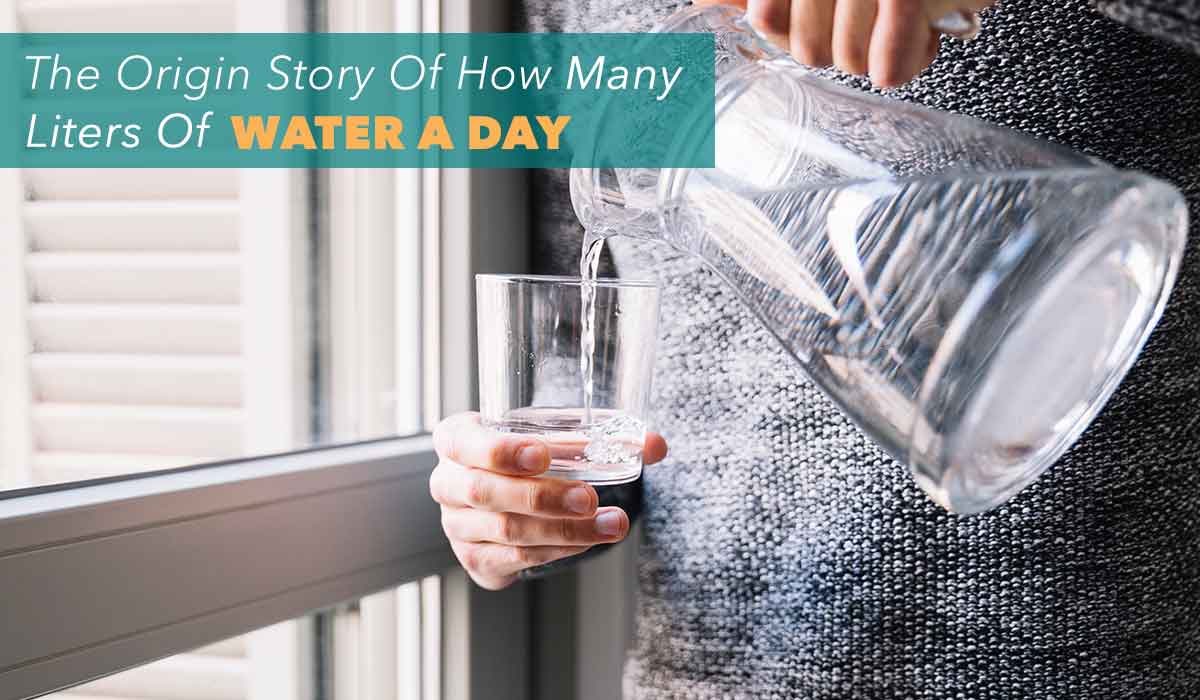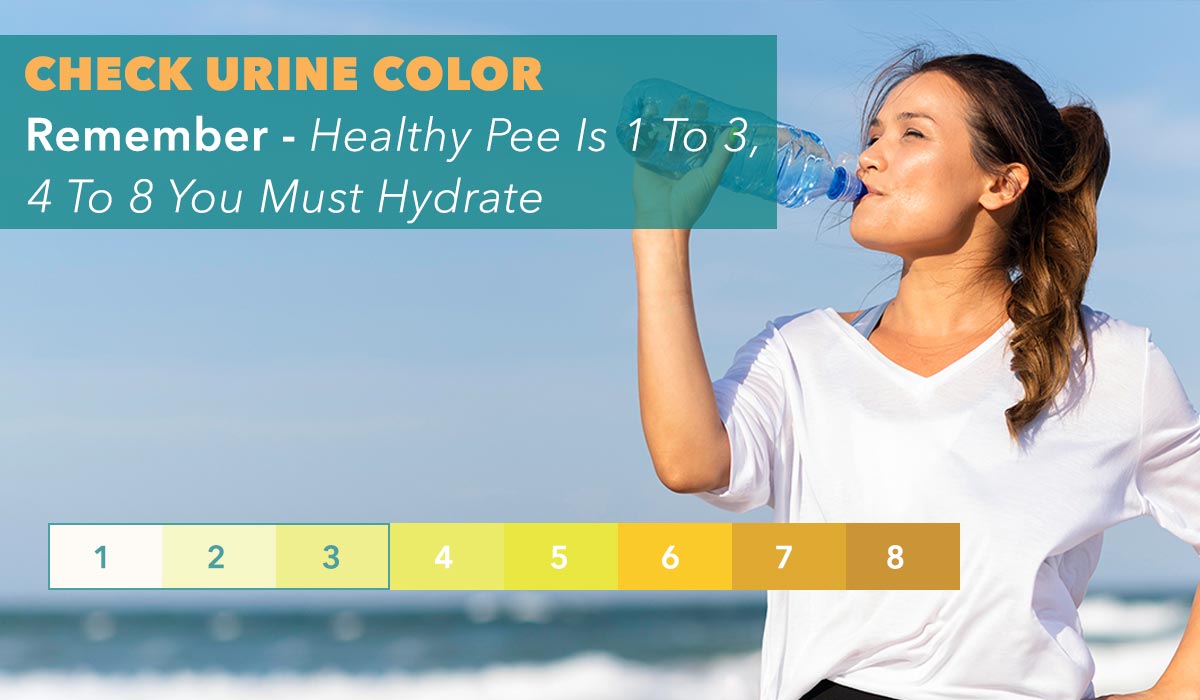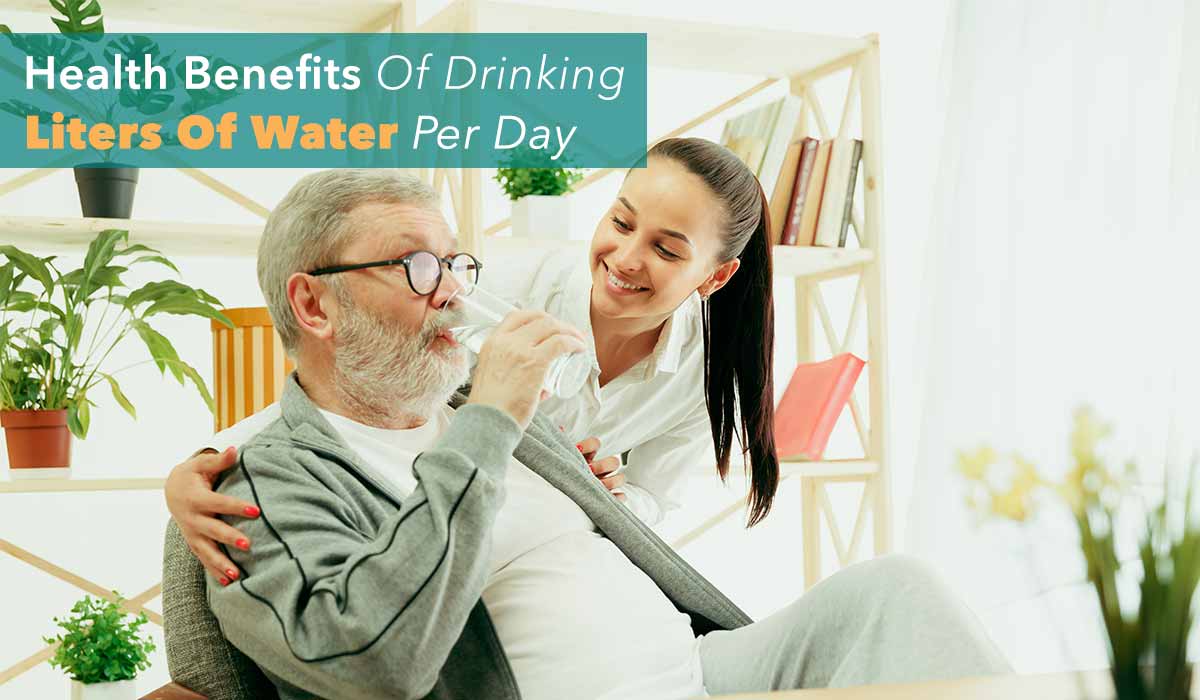If you search the internet regarding how much water to drink a day, your cellphone screen will be filled with various articles.
Almost every authentic fitness site, health blog, or channel out there claims that a person must drink eight glasses of water daily at the least. You may have a caring mother who lectures you about drinking 4 liters of water a day benefits.
But the problem is, hardly anyone asks pertinent questions. For example, do the 8 glasses of water rule apply to all people? What if a person is overweight or underweight? Does this rule apply to athletes? What about couch potatoes? Usually, we drink more water during summer, so does this 8 glasses of water rule apply to all weather conditions? In that case, how much water intake is suitable for the summer season or winter?
This blog will discuss how drinking 8-10 glasses may not be the holy grail standard for hydration. No need to worry, we will present you with the actual scientific understanding. Let us take a deep dive into this subject matter and bust some myths.

Contents
- The origin story of how many liters of water a day
- Busting the myth: how much water to drink a day?
- Let your body decide how much water should you drink a day
- Water intake and kidneys
- Should we drink only pure water?
- Health benefits of drinking liters of water per day
- Adverse effects of overhydration
- Conclusion
- FAQs
The origin story of how many liters of water a day
In order to find the truth, we need to figure out where this claim of 8 glasses of water has come from. Indeed, there has to be a scientific community who must have prescribed this in the first place.
Way back in 1945, the Food and Nutrition Board of the National Academy of Sciences put out this claim in the dietary guidelines. Now, that’s a very old claim with hardly any scientific backing. The guidelines in this claim stated, “2,500 mL (2.5 liters) of fluid should be ingested daily.” This very statement has no study to quote, no research or experts to support it.
Despite this unverified claim, many people are still influenced by it and are confused about how many glasses of water a day.
Busting the myth: how much water to drink a day?
Many still believe in the myth of 8 glasses, despite several published studies have debunked this claim. Here are some of the examples that many claimants wouldn’t want you to see.
In 1976, anthropologist Claude Paque stated that Saharan nomads survive on very little water even in the hottest region on earth? This research is significant in terms of understanding that our human body is remarkably resilient.
GP Margaret McCartney from Glasgow also published a study in 2011, debunking the claim of 8 glasses of water per day, and noted that bottled water companies who wanted to boost their sales funded the “drinking more water every day” studies.
The question, however, remains: how many glasses of water a day do we actually need?
As per the recently issued guidelines by the International Marathon Medical Directors Association, we need to check three things before determining how many liters of water per day we need.
- If a person has more body weight, he or she should need more water.
- Environmental temperature plays a crucial role. For example, if the surrounding is hotter, the body would need more water.
- A person’s activity level also determines how much a body would sweat and need water.

Let your body decide how much water should you drink a day
We would recommend you first talk to your doctor because everyone’s bodily needs are different.
You need to consider two factors to find out your hydration status:
First, your thirst signals you when you need to consume water.
Second, the color of your urine. Your urine’s color is the best indicator of whether you are drinking enough water or not.
You can refer to the Hydration Chart.
(put the chart here)
- When you take a leak, if your urine color is clear or straw-colored, it means you are drinking more than enough water.
- If your urine comes out in dark yellow, it means you need to drink more glasses of water.
- If the color of urine is pale yellow, it means your body’s hydration status is perfect.
You need to keep in mind, the color of urine may also suggest or depend on other factors or medications you might be on.
That’s why consulting your doctor before starting with a specific amount of water consumption per day is quite essential.

Water intake and kidneys
The human body is full of fascinating features. One of the fantastic functions of our kidneys is that they can act as filters. The more water we consume, the more material our kidneys filter.
It depends on how much water we drink. Our kidneys adjust their action by responding to a hormone called arginine vasopressin. This hormone sends signals to our body to retain water when required.
Our brain sensors detect changes in water balance in the body. They send signals to the kidneys. Within 40 seconds, the kidneys release or retain more water as required.
That’s why we should drink water as per our bodily needs and not because someone told us to drink water every one or two hours. If we drink more water than required, our kidneys may take longer to filter it out. Our natural system is far more reliable to determine how many glasses of water to drink per day.
Should we drink only pure water?
The answer may vary. The tap water we have in our home contains some minerals that our body requires. A standard UF (Ultrafiltration) + UV water purifier is an excellent choice to drink clean water with natural minerals.
Another interesting fact is that almost all food we consume has some water, contributing to our fluid intake.
For instance, one can get a good amount of fluid intake from coffee, tea, vegetables, fruits & their juices. These are some of the best options to get mineral and vitamin content in liquid form. So, you can add a lot of water-rich fruits and vegetables to your diet.

Health benefits of drinking liters of water per day
Although this blog is busting the popular myth of drinking 8 glasses of water, we don’t want our readers to neglect to drink enough water per their bodily capacity. Drinking enough water will provide you with multiple health benefits; allow us to put forward some of them.
- If you drink enough water, it can help you with weight loss.
- Drinking enough water can improve mood, memory, and brain performance in children, women, and older adults.
- You can reduce your oxidative stress by drinking enough water.
- You can treat and prevent headaches by drinking enough water. However, more research is required to verify this health benefit thoroughly.
- You can avoid constipation by drinking enough water.
- When you drink alcohol, it drains out more water than you take. So drinking enough water can help you with hangovers.
Apart from these health benefits, drinking enough is claimed to help with skin problems and kidney stones, but there is little scientific evidence.

Adverse effects of overhydration
Now, we have to come to the most crucial part of this article. Now, we have come to the most critical point in this article. Since we have mentioned the health benefits of drinking enough water, there is a tendency some people may not understand the context. This section will unveil some of the adverse effects of drinking too much water, called water intoxication or overhydration.
Overhydration can cause several health issues. It would be best to avoid drinking too much water.
- Drinking too much water can cause severe diarrhea or prolonged sweating. It happens because of hypokalemia or a decrease in potassium ions. Drinking too much water hampers the balance between intracellular and extracellular potassium ions.
- Hyponatremia happens in your body when you drink too much. In a simple language, it’s called overhydration. It is the opposite of dehydration.
- Low sodium or hyponatremia can cause the brain to swell up, resulting in various health issues.
- If you are a dialysis patient, overhydration can lead to heart failure.
- Water intoxication can lead to coma, delirium, seizures, or death.
- Overhydration overburdens your kidneys which leads to acute kidney injury.
Conclusion
After all this scientific scrutiny, we can figure out how much water should we drink a day by our thirst and bodily capacity. We should be suspicious of any strict universal guideline that asks you to drink specific glasses of water.
We have quoted research that says humans can survive with little water or even too much water for some time. This only makes us infer that our body will always tell us how much water we should drink.
For instance, an athlete will sweat more and drink more water with salts. In this case, instead of going for commercial athletic drinks, we recommend coconut water.
Above all, you should keep in mind that if you are experiencing excessive thirst or urination, visit your family doctor to rule out diabetes or kidney-related problems.
FAQs
Are there any benefits of drinking warm water throughout the day?
We have heard that drinking boiling water or warm water kills all the bacteria in the water. A u003ca href=u0022https://pubmed.ncbi.nlm.nih.gov/14671205/u0022 target=u0022_blanku0022 rel=u0022noreferrer noopeneru0022u003e2003 studyu003c/au003e found that switching from drinking cold water to hot water can speed up weight loss. u003cbru003eRaising water temperature to 98.6 degrees has accounted for 40% of the increase in metabolism. Following water consumption, this metabolic set-up lasted for 30 to 40 minutes.
Is it safe to drink green tea as a health drink?
A u003ca href=u0022https://www.ncbi.nlm.nih.gov/pmc/articles/PMC2855614/u0022 target=u0022_blanku0022 rel=u0022noreferrer noopeneru0022u003estudyu003c/au003e has found that even if you consume one to three cups of green tea per day, you can reduce the risk of a stroke by 35% and a heart attack by 20%. u003cbru003eGreen teas contain antioxidants that prevent the cells and blood vessels from becoming old. You can also go for other herbal teas such as tulsi, chamomile, lemongrass tea, or ginger tea. u003cbru003eu003cbru003eRead our blog on the u003ca href=u0022https://www.vitsupp.com/lemongrass-tea/u0022u003ebenefits of lemongrass teau003c/au003e.
Does drinking coffee can be harmful, or are there any health benefits?
A u003ca href=u0022https://www.ncbi.nlm.nih.gov/pmc/articles/PMC6266969/u0022 target=u0022_blanku0022 rel=u0022noreferrer noopeneru0022u003estudyu003c/au003e has suggested that around 3-4 cups or a maximum of 300-400mg of caffeine per day is safe. u003cbru003eDrinking coffee has been linked to a low risk of Alzheimer’s, type 2 diabetes, and liver diseases. Coffee contains antioxidants that can be mixed with other healthy ingredients, making it a delicious superfood-based healthy drink.
Is there any recent guideline that recommends how many liters of water per day one should drink?
As already discussed, there is no universal answer to how much water should you drink a day. However, the Institute of Medicine and the National Academy of Sciences recommend 15 glasses for men, 11 for women, and 8 for children. u003cbru003eWe recommend consulting your doctor before setting up any plan for yourself.


